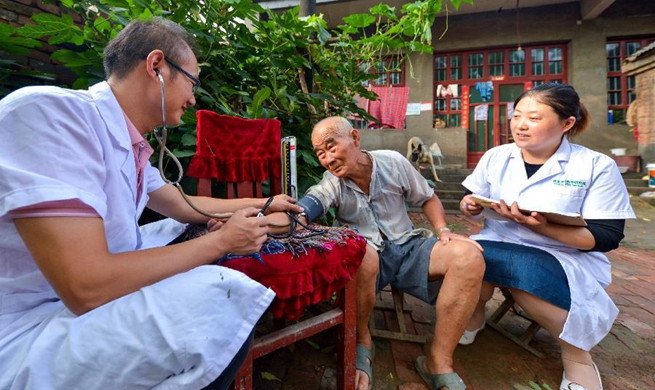SAN FRANCISCO, Aug. 18 (Xinhua) -- Children exposed to acute environment stressor before they were born and raised in poor families tend to develop lower levels of cognitive abilities later in life, says a Stanford University study released this week.
Florencia Torche, a sociology professor in the Stanford School of Humanities and Sciences, found that children from low-income households may suffer effects from acute stress that affected their mothers while pregnant.
Torche examined the impact of a strong earthquake in Chile more than 10 years ago on children's development during their mothers' pregnancy.
The women, who experienced the quake measuring 7.9 magnitude on the Richter scale that struck Tarapaca, Chile on June 13, 2005, saw their children perform "worse on a diverse set of skills critical for educational success, including arithmetic reasoning, verbal fluency, spatial analysis, logical thinking and problem-solving skills," said Torche who led the study published in the August edition of the academic journal Demography.
She combined birth records with a random sample of 591 children whose mothers experienced the earthquake during their pregnancy, and compared the data with a control group of 558 randomly selected children born in the same time period but unaffected by the earthquake.
After the children started attending school at the age of seven, Torche and her team conducted a series of cognitive tests with each child in the treatment and control groups.
They examined the children's abilities ranging from verbal comprehension, spatial reasoning, memory to how quickly they processed information needed to perform a task.
Torche found that only children from poor households were negatively affected and could fall up to half a year behind compared to their peers from middle- and upper-class families.
In other words, two-grader children from disadvantaged families exposed to stress in utero performed merely closer to a first-grade level, according to Torche's research.
Torche said wealthier families have more resources, both economically and culturally, to mitigate the adverse effects from unexpected events and intervene to make up for the weaknesses of their children by hiring tutors, signing up for structured activities, and interacting more with teachers or the school.
"While some disadvantaged families have also resorted to the assistance of experts and educators, and have requested institutional support, they face substantial barriers in terms of time, economic resources, and access to social networks and mastery of cultural resources to effectively negotiate with institutions for advantages for their children," Torche said.
Class-based parental responses that minimized effects of prenatal stress could further exacerbate social class disparities, she said.

















